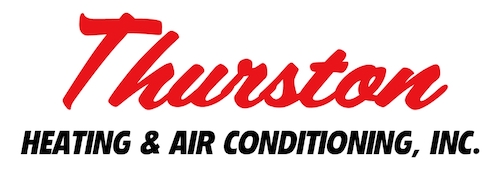
We spend lots of time indoors. As a matter of fact, the Environmental Protection Agency (EPA) has determined being inside makes up 90% of our time. Although, the EPA also has determined your indoor air can be three to five times more polluted than outdoors.
That’s due to the fact our homes are firmly sealed to boost energy efficiency. While this is great for your energy bills, it’s not so fantastic if you’re among the 40% of the population with respiratory allergies.
When outdoor ventilation is insufficient, pollutants such as dust and volatile organic compounds (VOCs) can get trapped. As a result, these pollutants can worsen your allergies.
You can enhance your indoor air quality with clean air and usual housework and vacuuming. But if you’re still having problems with symptoms when you’re at home, an air purifier could be able to provide assistance.
While it can’t remove pollutants that have landed on your furniture or carpeting, it may help freshen the air circulating throughout your home.
And air purification has also been scientifically verified to help lessen some allergic symptoms, according to the American College of Allergy, Asthma and Immunology. It might also be useful if you or someone in your household has a lung condition, including emphysema or COPD.
There are two options, a portable air purifier or a whole-home air purifier. We’ll examine the advantages so you can determine what’s right for your house.
Whole-House Air Purifier vs. Portable Air Purifiers
A portable air purifier is for a single room. A whole-house air purifier accompanies your heating and cooling equipment to treat your entire home. Some kinds can clean independent when your heating and cooling system isn’t running.
What’s the Best Air Purifier for Allergies?
Look for a model with a High Efficiency Particulate Air (HEPA) filter. HEPA filters are placed in hospitals and offer the greatest filtration you can get, as they catch 99.97% of particles in the air.
HEPA filters are even more beneficial when combined with an ultraviolet (UV) germicidal light. This powerful blend can destroy dust, dander, pollen and mold, all of which are general allergens. For the greatest in air purification, evaluate equipment that also has a carbon-based filter to eliminate household vapors.
Avoid getting an air purifier that creates ozone, which is the top element in smog. The EPA advises ozone may worsen respiratory problems, even when discharged at minor settings.
The Allergy and Asthma Foundation of America has made a listing of questions to ask when buying an air purifier.
- What can this purifier extract from the air? What doesn’t it extract?
- What’s its clean air delivery rate? (A better amount means air will be purified more rapidly.)
- How often does the filter or UV bulb need to be changed]? Can I finish that on my own?
- How much do replacement filters or bulbs cost?
How to Lessen Seasonal Allergy Symptoms
Want to have the {top|most excellent|best] performance from your new air purification equipment? The Mayo Clinic suggests completing other steps to decrease your exposure to problems that can cause seasonal allergies.
- Stay inside and keep windows and doors shut when pollen counts are high.
- Have someone else trim the lawn or pull weeds, since these tasks can irritate symptoms. If you have to do this work yourself, consider trying a pollen mask. You should also rinse off without delay and change your clothes once you’re completed.
- Avoid drying laundry outside.
- Run your air conditioner while at home or while you’re on the road. Consider using a high efficiency air filter in your house’s heating and cooling system.
- Balance your home’s humidity levels with a whole-house dehumidifier.
- Hardwood, tile or linoleum are the best flooring materials for reducing indoor allergens. If your house has carpet, use a HEPA filter on your vacuum cleaner.
Let Our Specialists Handle Your Indoor Air Quality Needs
Ready to move forward with getting a whole-house air purifier? Give our experts a call at 308-270-3765 or contact us online to get an appointment. We’ll help you choose the ideal unit for your home and budget.
